The Biden administration’s Middle East aid envoy Lisa Grande reportedly made demands of Israel regarding the humanitarian situation in the Gaza Strip, in a harsh phone call with Israel’s military liaison to the Palestinians, COGAT chief Gen. Ghassan Alian.
Channel 12 news reports that Grande demanded during the call that Israel declare it is not following a policy of deliberately starving Gazans
How about demanding that they STOP deliberately starving Gazans.
I swear, Democrats only care about words and not actions. Which certainly explains why they interpret all criticism as coming from russian trumpists.
Biden in a deep bunker somewhere:
So I told Bibi…
(looks around)
biiiiiiitch…
US said to ask Israel to cover tracks better so as not to implicate US in the extermination of Arab babies
Israel has been starving Gaza since the 90s.
Sources for anyone who interested:
The enclosure began in the 70s, the restricting of imports/exports in the 90s, the blockade implemented in the 00’s significantly worsened the already bad conditions deliberately imposed on the Occupied population, while being repeatedly bombed
De-development via the Gaza Occupation
Between July 1971 and February 1972, Sharon enjoyed considerable success. During this time, the entire Strip (apart from the Rafah area) was sealed off by a ring of security fences 53 miles in length, with few entrypoints. Today, their effects live on: there are only three points of entry to Gaza—Erez, Nahal Oz, and Rafah.
Perhaps the most dramatic and painful aspect of Sharon’s campaign was the widening of roads in the refugee camps to facilitate military access. Israel built nearly 200 miles of security roads and destroyed thousands of refugee dwellings as part of the widening process.’ In August 1971, for example, the Israeli army destroyed 7,729 rooms (approximately 2,000 houses) in three vola- tile camps, displacing 15,855 refugees: 7,217 from Jabalya, 4,836 from Shati, and 3,802 from Rafah.
- Page 105
Through 1993 Israel imposed a one-way system of tariffs and duties on the importation of goods through its borders; leaving Israel for Gaza, however, no tariffs or other regulations applied. Thus, for Israeli exports to Gaza, the Strip was treated as part of Israel; but for Gazan exports to Israel, the Strip was treated as a foreign entity subject to various “non-tariff barriers.” This placed Israel at a distinct advantage for trading and limited Gaza’s access to Israeli and foreign markets. Gazans had no recourse against such policies, being totally unable to protect themselves with tariffs or exchange rate controls. Thus, they had to pay more for highly protected Israeli products than they would if they had some control over their own economy. Such policies deprived the occupied territories of significant customs revenue, estimated at $118-$176 million in 1986.
- page 240
In a report released in May 2015, the World Bank revealed that as a result of Israel’s blockade and OPE, Gaza’s manufacturing sector shrank by as much as 60% over eight years while real per capita income is 31 percent lower than it was 20 years ago. The report also stated that the blockade alone is responsible for a 50% decrease in Gaza’s GDP since 2007. Furthermore, OPE (combined with the tunnel closure) exacerbated an already grave situation by reducing Gaza’s economy by an additional $460 million.
-
Page 402
-
The Gaza Strip: The Political Economy of De-Development - Third Edition by Sara M. Roy
Blockade, including Aid
Hamas began twenty years into the occupation during the first Intifada, with the goal of ending the occupation. Collective punishment has been a deliberate Israeli tactic for decades with the Dahiya doctrine. Violence such as suicide bombings and rockets escalated in response to Israeli enforcement of the occupation and apartheid.
After the ‘disengagement’ in 2007, this turned into a full blockade; where Israel has had control over the airspace, borders, and sea. Under the guise of ‘dual-use’ Israel has restricted food, allocating a minimum supply leading to over half of Gaza being food insecure; construction materials, medical supplies, and other basic necessities have also been restricted.
The blockade and Israel’s repeated military offensives have had a heavy toll on Gaza’s essential infrastructure and further debilitated its health system and economy, leaving the area in a state of perpetual humanitarian crisis. Indeed, Israel’s collective punishment of Gaza’s civilian population, the majority of whom are children, has created conditions inimical to human life due to shortages of housing, potable water and electricity, and lack of access to essential medicines and medical care, food, educational equipment and building materials.
- Amnesty International Report pg 26-27
Gaza Infographics
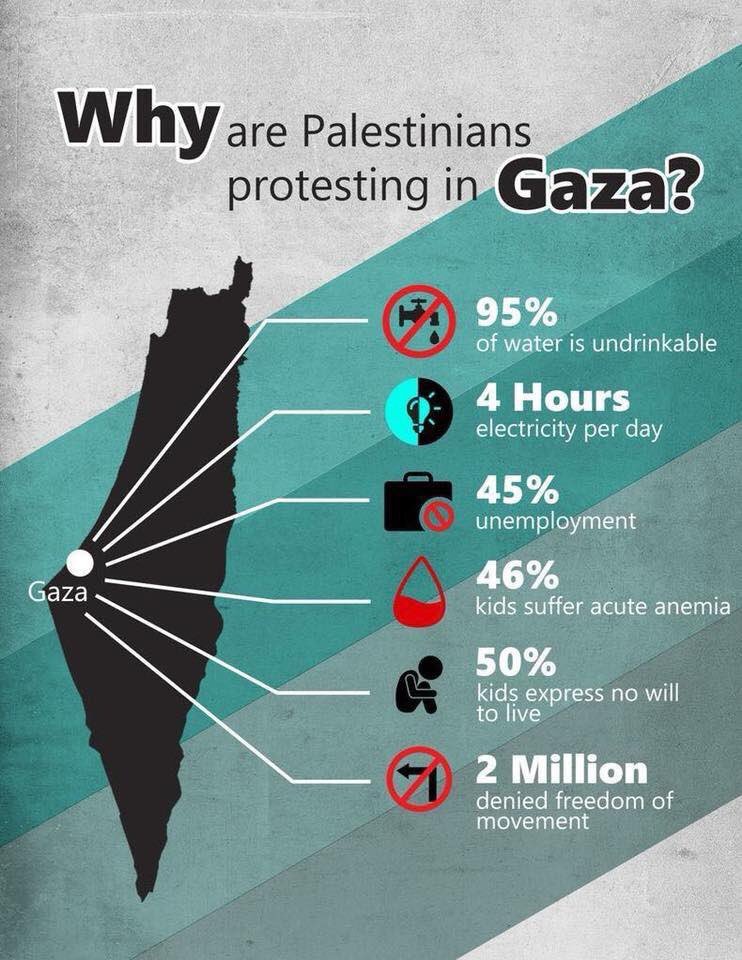
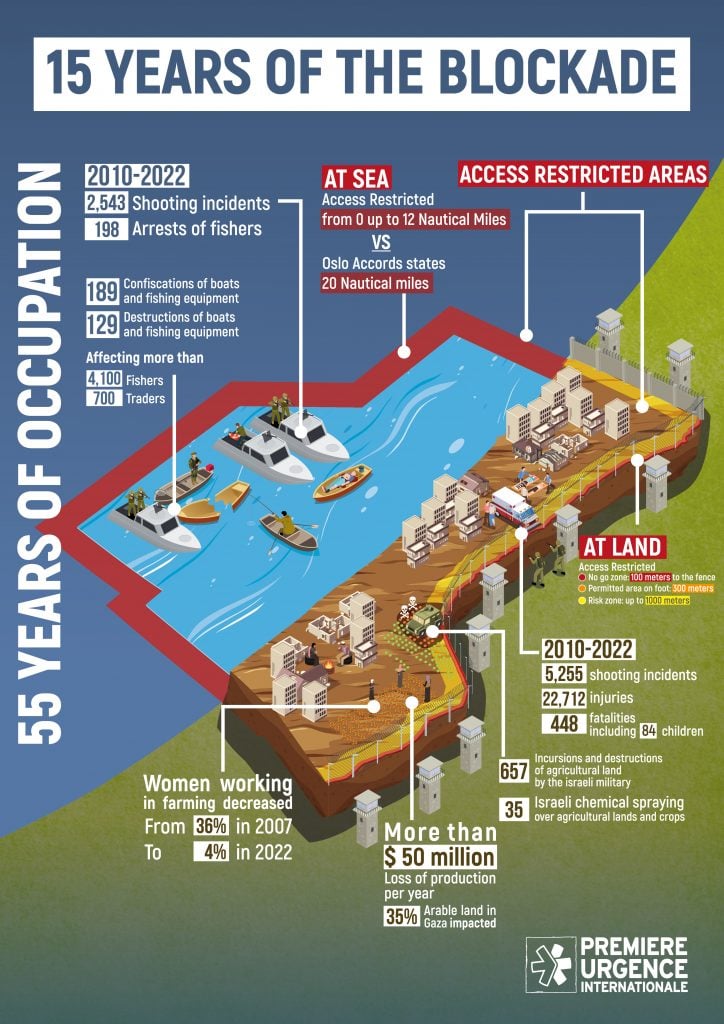
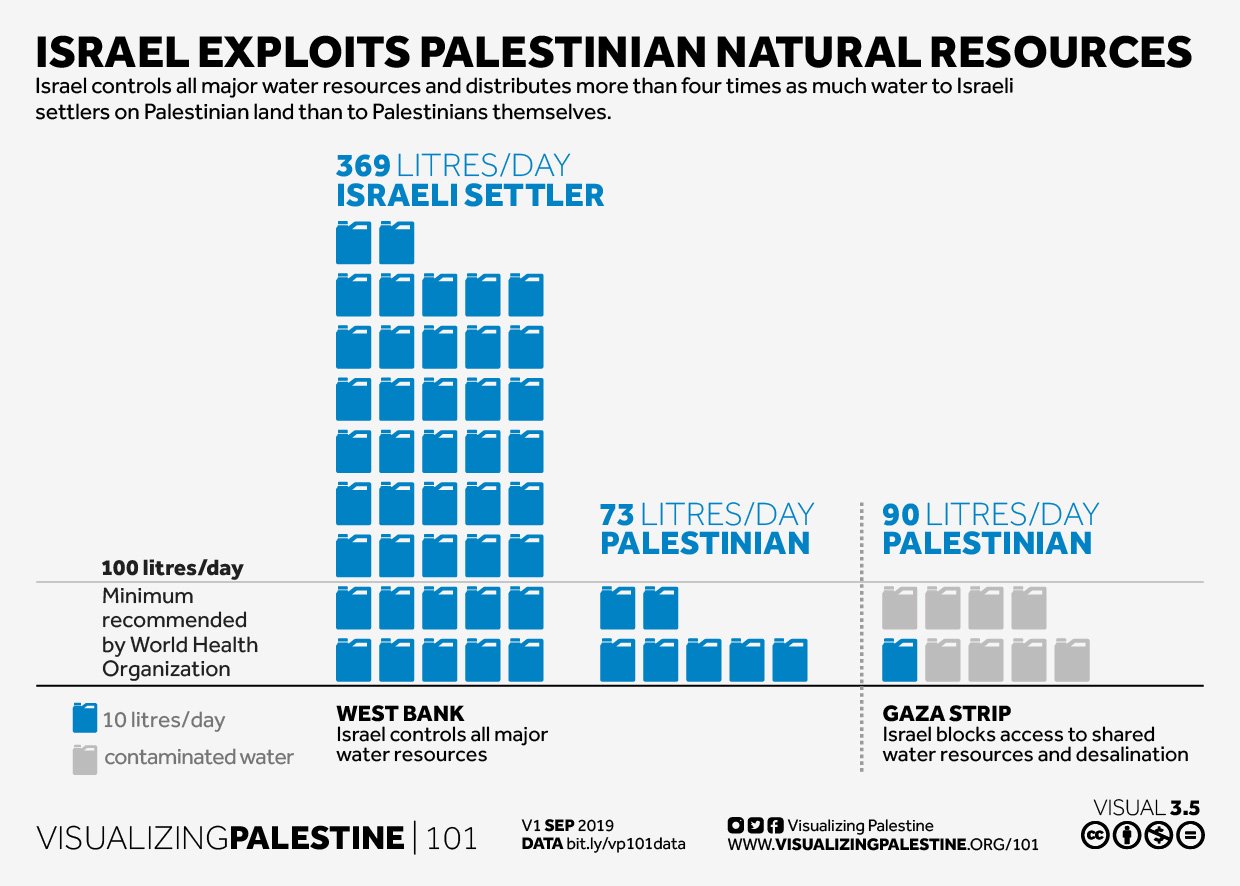
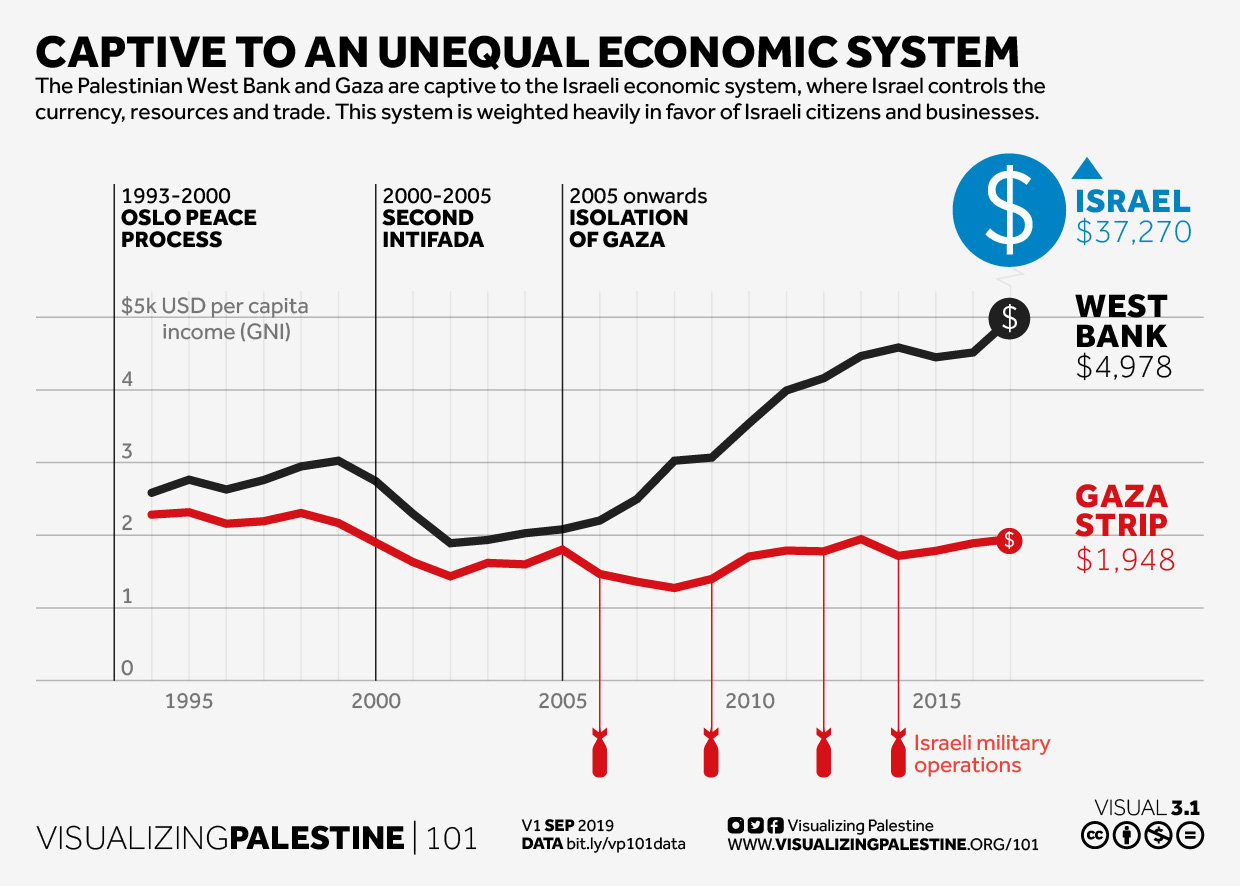
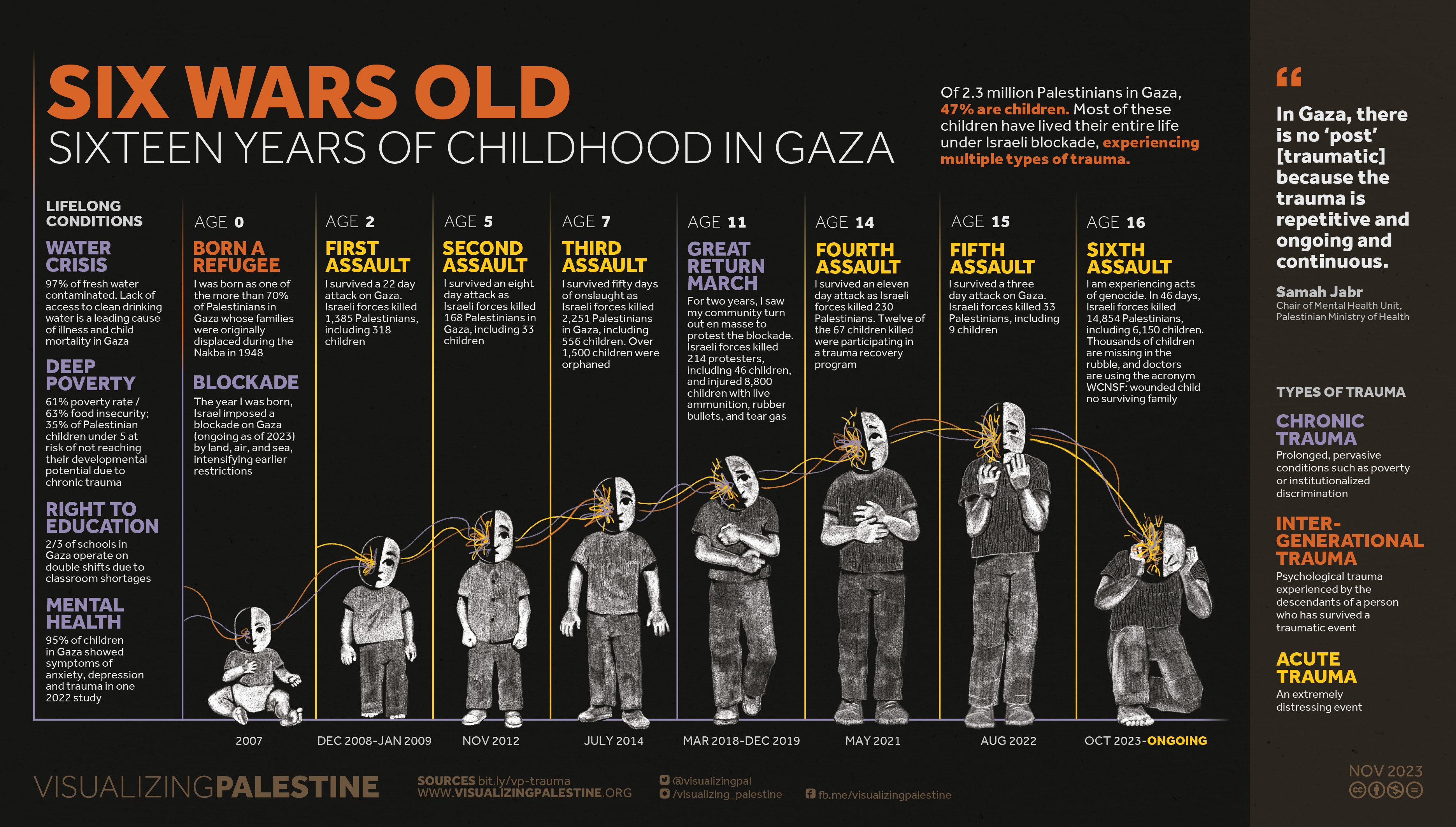
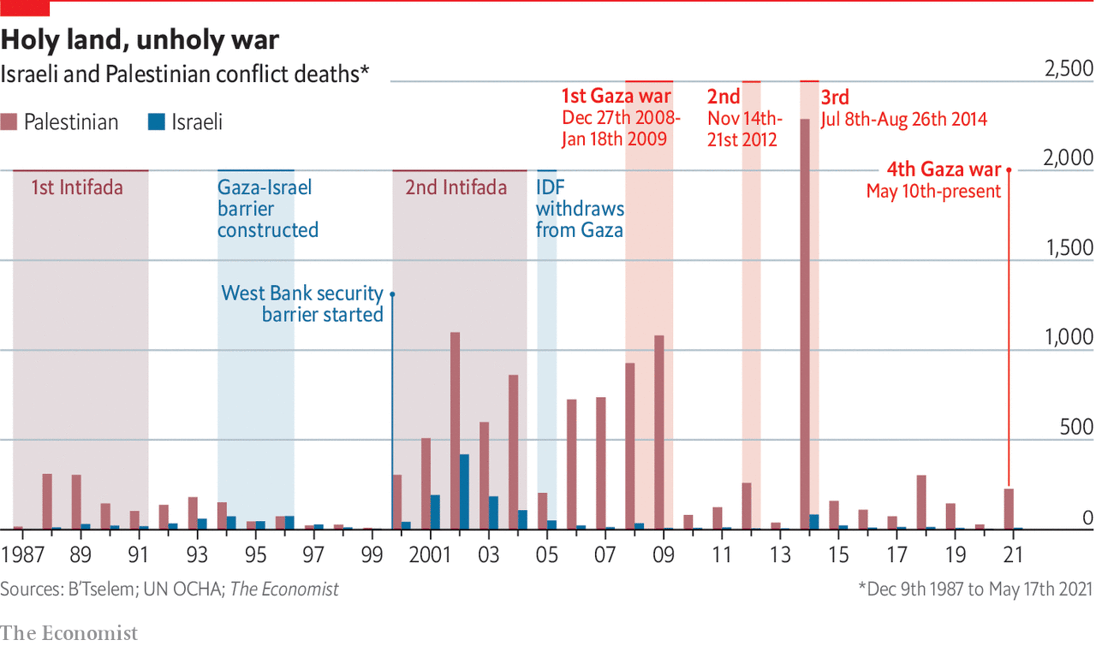
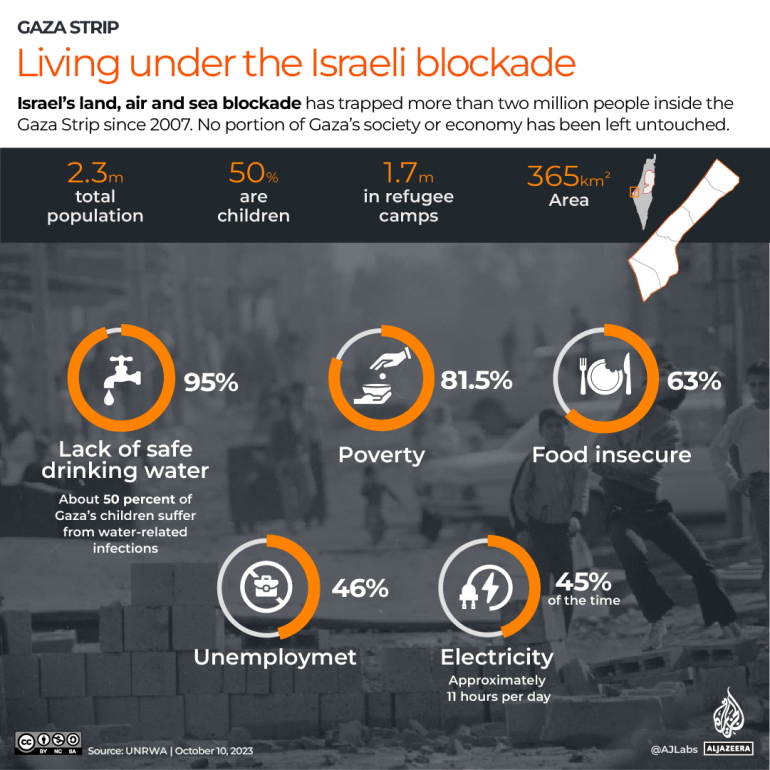
Thanks for the backup on this, it’s really disheartening to see how little people actually know about what Israel does over there.
And it’s not just Gaza, it’s the West Bank, Lebanon, and Golan too.
Okay now say why. All of your infographics should just be titled “The Consequences of Our Own Actions.”
Blaming occupation and genocide on the victims is incredibly racist and dehumanizing, something you’ve done routinely.
Why is Israel engaging in ethnic cleansing? Because it’s fundamental to Zionism.
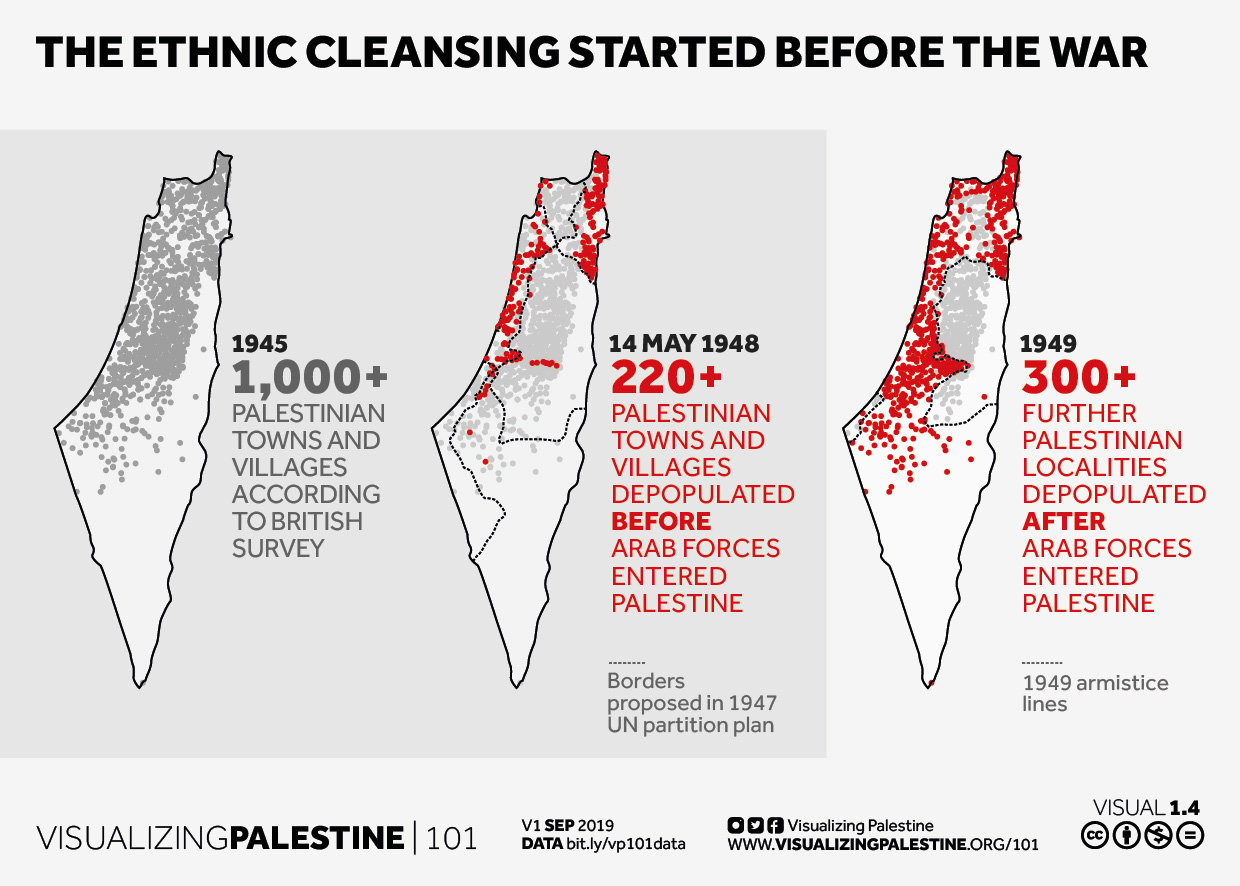
Ethnic Cleansing is fundamental to Zionism
Zionism’s aims in Palestine, its deeply-held conviction that the Land of Israel belonged exclusively to the Jewish people as a whole, and the idea of Palestine’s “civilizational barrenness" or “emptiness” against the background of European imperialist ideologies all converged in the logical conclusion that the native population should make way for thenewcomers.
The idea that the Palestinian Arabs must find a place for themselves elsewhere was articulated early on. Indeed, the founder of the movement, Theodor Herzl, provided an early reference to transfer even before he formally outlined his theory of Zionist rebirth in his Judenstat.
An 1895 entry in his diary provides in embryonic form many of the elements that were to be demonstrated repeatedly in the Zionist quest for solutions to the “Arab problem ”-the idea of dealing with state governments over the heads of the indigenous population, Jewish acquisition of property that would be inalienable, “Hebrew Land" and “Hebrew Labor,” and the removal of the native population.
Settlements and Occupation
Israel justifies the settlements and military bases in the West Bank in the name of Security. However, the reality of the settlements on-the-ground has been the cause of violent resistance and a significant obstacle to peace, as it has been for decades.
This type of settlement, where the native population gets ‘Transferred’ to make room for the settlers, is a long standing practice.
- The Transfer Committee, and the JNF Ethnic Cleansing, which led to Forced Displacement of 100,000 Palestinians throughout the mandate before the Nakba
The mass ethnic cleansing campaign of 1948:
Further, declassified Israeli documents show that the Occupation of the West Bank and Gaza Strip were deliberately planned before being executed in 1967:
While the peace process was exploited to continue de-facto annexation of the West Bank via Settlements
The settlements are maintained through a violent apartheid that routinely employs violence towards Palestinians and denies human rights like water access, civil rights, etc. This kind of control gives rise to violent resistance to the Apartheid occupation, jeopardizing the safety of Israeli civilians.
The apartheid regime is based on organized, systemic violence against Palestinians, which is carried out by numerous agents: the government, the military, the Civil Administration, the Supreme Court, the Israel Police, the Israel Security Agency, the Israel Prison Service, the Israel Nature and Parks Authority, and others. Settlers are another item on this list, and the state incorporates their violence into its own official acts of violence. Settler violence sometimes precedes instances of official violence by Israeli authorities, and at other times is incorporated into them. Like state violence, settler violence is organized, institutionalized, well-equipped and implemented in order to achieve a defined strategic goal.
Now say something about all the rocket attacks and suicide bombings, and about all the straight up murders since day one, before Israel was even an idea of a state. Doesn’t fit your Iranian propaganda though.
Bombings and murders are always terrible, however it sounds like you might be advocating for punishing anyone who lives in the region, not the organizations that were responsible for those attacks. https://en.m.wikipedia.org/wiki/Collective_punishment
Yes, it’s a very nuanced situation. Incidental casualties are permissive in war though, pretty untroversially, I might add. I’m absolutely not content to let any more generations of Palestinians live and die under the rule of actual terrorists in an actual far-right dictator state. It’s sad that 1% of the country there has been unable to escape from Hamas, and got killed for it.
I think the other 99% of people in Gaza are probably ready to move on from Hamas’s utterly failed leadership.
Dude are you blind? You’re calling genocide “incidental casualties”? When your only argument is “Hamas Bad” maybe you should take a longer look at what Israel is doing to normal people every day. It’s absolutely clear you believe normal people are valid military targets, and any argument you come up with is just justifying that stance.
If you want to understand the history of Settler Colonialist Violence and the resulting anti-colonialist resistance, I suggest you read a book or watch a documentary.
Historian Works on the History
-
Palestine: A Four Thousand Year History - Nur Masalha
-
The Concept of Transfer 1882-1948 - Nur Masalha
-
A History of Modern Palestine - Ilan Pappe
-
The Hundred Years’ War on Palestine - Rashid Khalidi
-
The Ethnic Cleansing of Palestine - Ilan Pappe
-
The 1967 Arab-Israeli War: Origins and Consequences - Avi Shlaim
-
The Biggest Prison on Earth: A History of the Occupied Territories - Ilan Pappe
-
The Gaza Strip: The Political Economy of De-development - Sara Roy
-
10 Myths About Israel - Ilan Pappe (summery)
Documentaries
A shocking insight into Israel’s Apartheid | Roadmap to Apartheid | Full Film
Palestine 101 with Abby Martin
Life in Occupied PALESTINE by Anna Baltzer
How Israeli Apartheid Destroyed My Hometown
One year of Israel’s war on Gaza: Al Jazeera special coverage
Palestine 1920: The Other Side of the Palestinian Story | Al Jazeera World Documentary
I already do understand it, thank you.
-
The reddest of lines
Declaring it makes it true, too?





